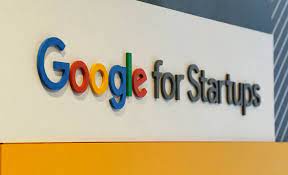Google has announced a new programme called “Google for Startups Accelerator: AI First.” on Tuesday, August 22.
This programme is designed to assist African entrepreneurs who are interested in employing Artificial Intelligence (AI) to address issues that are specific to the region.
This programme recognises the revolutionary role that AI is playing across the world, changing industries and rethinking the frontiers of possibilities, according to a statement released by Folarin Aiyegbusi, Head of the Startup Ecosystem for Africa.
According to Aiyegbusi, this also underscores the important contributions made by African companies in addressing some of the most critical concerns facing the area through the application of AI.
He said: ‘’Africa’s tech landscape is vibrant and ever-evolving, it is inspiring to see African startups not only harnessing AI to address our unique challenges but also setting benchmarks for the world.”
‘’AI First’ is more than a program; it’s a testament to our belief in the vision of these startups, ensuring they have the support and guidance they need to realise their full potential.”
‘’This program recognises the transformative role that AI is playing across the world, innovating industries and reimagining the realms of possibilities,’’ he added.
Read also: Vault Pay becomes third African startup in Y Combinator’s Summer 2023
The impact of Google’s program
According to him, it also underscores the enormous contributions that African companies have made in tackling some of the region’s most pressing concerns through the use of artificial intelligence (AI). He explained that the ‘AI First’ programme is intended to provide financial assistance to new businesses that are enthusiastic about exploring the opportunities presented by AI.
According to Aiyegbusi, it incorporates the lessons learned from previous programmes such as the Google for Startups Accelerator: Africa and the Google for Startups Black Founders Fund. Other initiatives include the Google for Startups Accelerator for Women Founders, with the primary objective continuing to be the promotion and development of African-driven solutions.
The head stated that the participants would gain access to Google’s AI experience technical resources, including up to 350000 Google Cloud Credits, mentorship from seasoned AI workers, and invaluable opportunity to network with other professionals in the field.
According to Aiyegbusi, the Google for Startups Accelerator: Africa programme has provided assistance to 106 firms originating from 17 different countries in Africa since it was established in 2018. He stated that collectively, these start-ups had raised more than 263 million dollars in capital and produced more than 2,800 direct job opportunities in the region.
According to Aiyegbusi, applications for the equity-free 10-week accelerator programme are currently available. The programme is inviting entrepreneurs up to series A stage that are based in Africa or are producing Africa-centric solutions with AI and machine learning.
He mentioned that applications from startups were accepted through September.
About Google for Startups Accelerator: AI First
The Google for Startups Accelerator: AI First is a non-equity based, ten-week accelerator programme for Seed to Series A firms located in Africa or building Africa-centered solutions with technology. The programme is open to startups from anywhere in the world. The Accelerator programme is not specific to any industry, but the only companies from any industry that will have their applications considered are those that make use of artificial intelligence and machine learning.
The AI First programme is intended for young companies who are in the process of developing new goods or services that make revolutionary use of artificial intelligence. We are looking for startups that have a solid team and a clear vision for how artificial intelligence may be utilised to address problems that exist in the real world.
Application can be accessed here.
